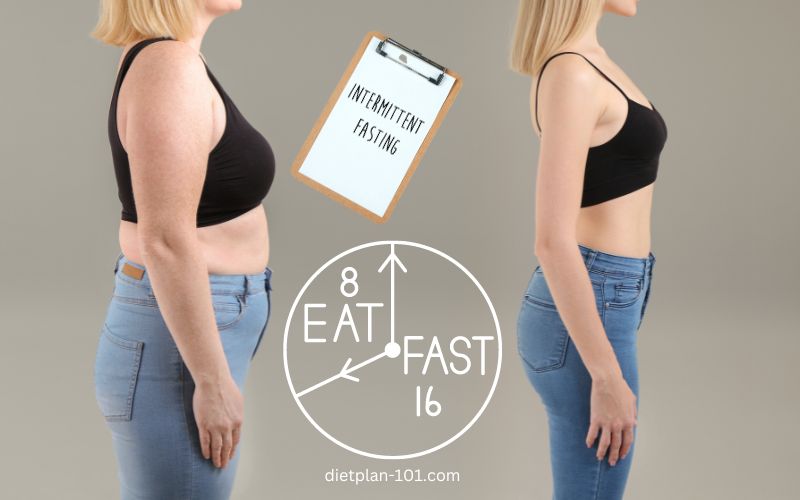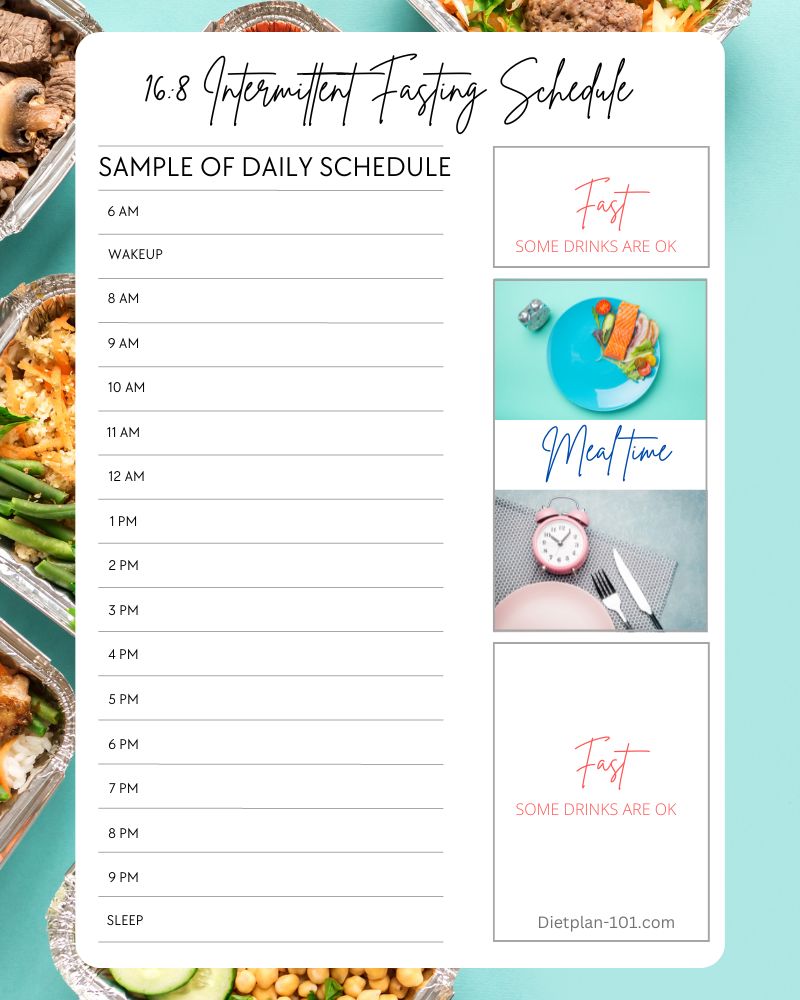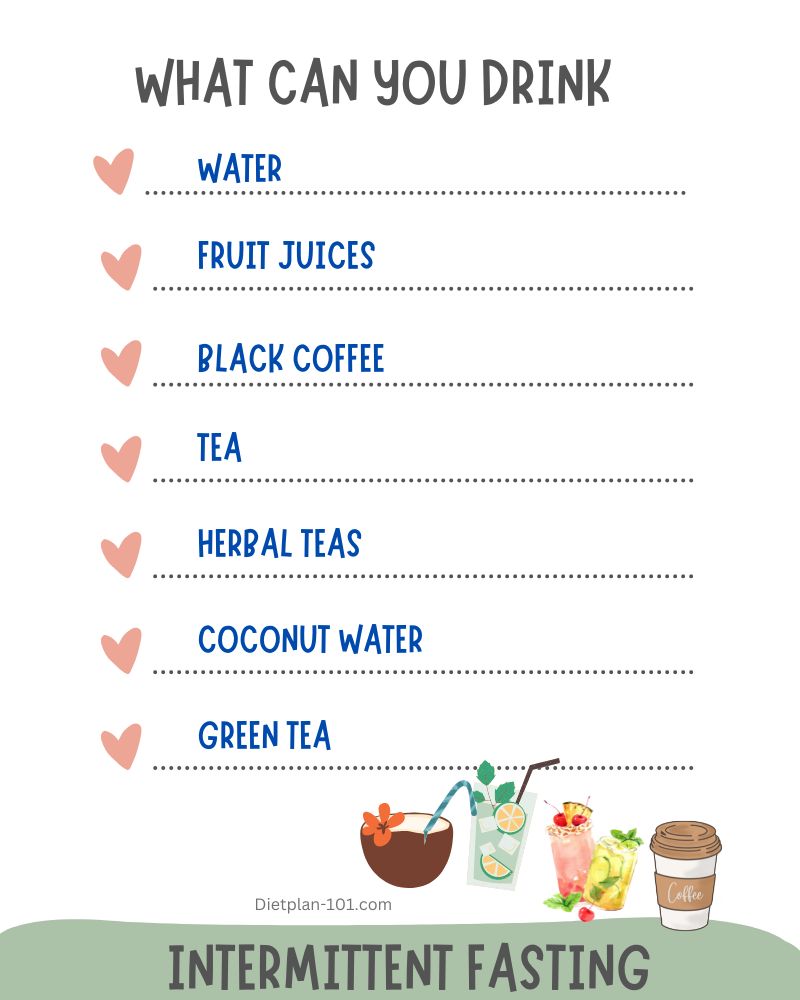Intermittent fasting is a popular diet that can seem like a fad. But it’s actually been around for thousands of years, and research suggests it could be useful for weight loss and other health benefits.
I’m always looking for ways to simplify my life, so I decided to give intermittent fasting a try, and ended up sticking with the 16:8 fasting method.
Here’s how it works and what you need to know before trying it yourself.
What is Intermittent Fasting?
Intermittent fasting is the practice of abstaining from food for a period of time. This can be done in many ways, including the 16:8 method, alternate-day fasting, and 24-hour fasts.
Intermittent fasting has been shown to have many health benefits such as weight loss, better blood sugar control, and improved heart health.
What is 16:8 Intermittent Fasting Method?
There are many different types of intermittent fasting, but the 16:8 method is one of my favorites. The 16:8 method means that you fast for 16 hours and eat during an eight-hour period. For example, if you start your first meal at 12 p.m., which is when your eating window begins. Your last meal of the day should be no later than 8 p.m.
The fact that this type of fasting allows people to keep their regular meals is one reason why it’s so popular among those who practice it regularly or sporadically. It doesn’t require any major changes or adjustments to what they already do during the day, allowing them flexibility in scheduling meals and snacks so long as they’re within their eating windows each day.
How Do You Follow the 16:8 Fasting?
This fasting is fairly simple, and it’s not hard to follow. Here are the rules:
Eat 8 hours a day and fast for 16 hours. You can eat whatever you want during the eating hours, but don’t eat anything during your fasting periods. To make things easier, just don’t eat at night. Then, wait until the next day before eating again.
Don’t worry about snacking in between meals; if you get hungry between meals (which you probably won’t), drink plenty of water instead!
16:8 Intermittent Fasting Schedule
Start with a 16-hour fast, where you eat nothing during this fasting period, then eat 2 or 3 meals at the eating hour. You can eat as much as you want during those meals, but make sure it’s healthy food!
Example of a fasting schedule, if you can’t live without breakfast. Slot your food earlier in the day (8 a.m. to 4 p.m.). So you get up at 8am and go to bed at 11pm, your eating window would be from 8am-4pm. Your fasting window would be 4pm-8am.
If you prefer an early dinner, eat in the middle of the day (11 a.m. to 7 p.m.).
If you’re someone who regularly goes out with friends for late dinners, schedule your eating hours later in the day (1 p.m. to 9 p.m.).
Contrary to popular opinion, there are no rules around how many meals you have to squeeze in or whether or not you have to include breakfast. In fact, no data actually proves breakfast makes you healthier or weigh less.
Who is not suitable for the 16:8 diet?
If you have any of the following conditions, then intermittent fasting may not be for you:
- Diabetes. People with diabetes should always consult their doctor before starting any new diet. In particular, if you take insulin or other medications that make it difficult to control your blood sugar levels, then intermittent fasting may cause problems.
- Eating disorders or disordered eating habits. Anyone who has ever struggled with eating disorder symptoms should avoid this diet as it can lead to obsessive behavior regarding food intake and calorie counting (which can trigger an eating disorder).
- Underweight people or those recovering from illness/surgery who need extra nutrients right now (the bodies of undernourished people will be unable to utilize fat reserves efficiently).
- Pregnant women or breastfeeding mothers; due to increased nutritional requirements as well as increased stress on their bodies.
What to Eat During Intermittent Fasting
While there are many different opinions on what to eat during intermittent fasting, there are some general guidelines that most experts agree on.
You should eat whole, healthy foods that are high in fiber and protein. This includes fruits, vegetables, beans and legumes (lentils, chickpeas), nuts and seeds (almonds, walnuts), whole grains (brown rice, quinoa), dairy products (milk, yogurt), and lean meats (chicken breast). Animal products such as meat should be leaner cuts of meat with skin removed for maximum health benefits.
You can drink water but avoid soda or other sugary drinks as they will cause more hunger pangs than water will due to their high-calorie content. If you feel hungry between meals then try eating some raw nuts or unsalted pretzels to satisfy your cravings until your next mealtime comes around.
What Can You Drink While Intermittent Fasting
While drinking water is a great choice for your health and well-being, there are some other beverages that are safe to drink during your fast. The best choice for your health is always pure water! However, there are some other choices that can be beneficial for your body as well.
Here are some drinks that are okay to consume while intermittent fasting:
- Water
- Fruit juices without added sugars (i.e., cranberry juice)
- Black coffee – Drinking black coffee while intermittent fasting can help boost your metabolism and burn more calories throughout the day. It’s important not to add any sweeteners or creams though.
- Tea without added sugar or cream (make sure to check the label for other ingredients like milk)
- Herbal teas – Herbal teas such as peppermint and green tea have been shown to have many health benefits, including reducing stress levels and improving mental focus.
- Coconut water – Coconut water is a great source of electrolytes like potassium and sodium which will help prevent dehydration during an extended fast period.
- Green tea has been shown to help boost metabolism and improve mental clarity—so it’s a win-win!
You can drink as much water as you want, but try to stay away from milk and other high-calorie drinks that might make you hungry later on.
Intermittent Fasting: Can You Drink Water During The Fast?
Yes, you can drink water while intermittent fasting during the fasting period. During the fast, you consume only water, coffee/tea, and other non-caloric beverages.
It’s important to stay hydrated when fasting, you’ll want to drink plenty of water during your fast.
Health Benefits of The 16:8 Intermittent Fasting
Intermittent fasting is a great way to lose weight, especially if you’re doing it right.
It’s not just about eating less. Intermittent fasting helps you improve your insulin sensitivity and decrease inflammation in your body, which can help reverse diabetes and lower your risk for other diseases. It also helps you burn fat more efficiently by increasing the amount of human growth hormone (HGH) in your body and improving your cellular repair processes.
Intermittent fasting gives your digestive system a break so that you can absorb nutrients better when you do eat. It also helps reduce stress on your gut microbiome, which prevents the overgrowth of bad bacteria that can cause digestive problems like diarrhea or constipation.
Intermittent fasting has many health benefits beyond weight loss, including improved brain function and reduced risk of Alzheimer’s disease, cancer development, heart disease, and diabetes mellitus type 2 (to name just a few).
Intermittent Fasting for Women
When it comes to intermittent fasting and women, there are a few things to keep in mind. First, the female body is different than the male body, so you’ll want to take that into account when deciding whether or not intermittent fasting is right for you. But still, it can be a great way to lose weight (or keep it off) and improve your health overall.
Some of the most important things to keep in mind when deciding if intermittent fasting is right for you:
Women have more fat than men do. This means that they should be careful about how much weight they lose through intermittent fasting because if they lose too much weight too quickly, this can affect their reproductive health.
Women tend to have less muscle mass than men do. This means that if a woman decides to try intermittent fasting, she should make sure she’s eating enough protein throughout her day so that her muscles don’t break down from a lack of nutrients or calories from food.
Be cautious if you’re pregnant or breastfeeding. Intermittent fasting is not recommended for women during pregnancy or breastfeeding. Intermittent fasting can negatively affect the baby’s growth and development if you’re not eating enough calories on your fasting days. This means that your baby will have less food than it needs to grow healthy and strong which could cause developmental issues later in life.
Intermittent fasting isn’t recommended for women who are breastfeeding
When you’re breastfeeding, your body needs more nutrients than usual because it’s working hard to produce milk for your baby. Intermittent fasting may cause you to lose too much weight and not get enough calories, which could make it harder for your body to produce enough milk for your baby.
Intermittent fasting can be tough on your body especially when you’re breastfeeding so it’s best to avoid it while you’re feeding your baby.
Best Intermittent Fasting Tips for Weight Loss
Intermittent fasting is a great way to lose weight, and it’s not as hard as you might think. The main thing is that you need to be prepared.
When you’re ready to start intermittent fasting, here are a few tips to get started:
- Get your body ready by eating healthy foods for one week before you begin. This will help you avoid any cravings or hunger pains while on your fast.
- Drink plenty of water during your fast. This will help keep your body hydrated and your energy level high.
- Eat breakfast within an hour of waking up. This will help stabilize your blood sugar throughout the day and prevent hunger pangs from flaring up.
- You’ll feel fuller longer if you eat lean proteins and healthy fats such as avocado or nuts as opposed to carbs like rice or bread which don’t provide much satiety at all!
- Make sure all of the food in your house is healthy so that when it comes down to it, there isn’t anything tempting around that could distract you from your goals!
- Eat slowly, even if it means taking 30 minutes or longer between bites or sips of food throughout the day. This will allow your body time to digest each bite properly so that it can absorb all the nutrients from what you eat—and prevent overeating as well.
- Keep track of how much weight you lose during each fast! That way you’ll know exactly what works best for your body type and lifestyle—and it’ll keep you motivated too!
- Don’t overdo fasting, you can only fast so often before it starts to affect your performance in other areas of life, like work and school.
- If possible, try not going to bed immediately after a meal as this can disrupt sleep patterns
Health Risks of Intermittent Fasting
While intermittent fasting is generally safe for healthy individuals, it can be dangerous for people with certain health conditions. People with diabetes should consult their doctor before attempting any kind of fast because fasting may increase their risk of developing hypoglycemia (low blood sugar).
Blood sugar levels in people with diabetes are already elevated and therefore vulnerable to sudden drops during fasting periods. If you have diabetes and are considering trying intermittent fasting, seek medical supervision before beginning the regimen and make sure your doctor knows about any changes in medication or insulin dosage.
Intermittent fasting has also been linked with symptoms such as fatigue, muscle soreness, headaches, and insomnia. This may be due to the fact that when you’re not eating regularly during your fasts, your body goes into starvation mode, which can cause these types of symptoms.
Intermittent fasting can also cause headaches and dizziness if you do so while dehydrated or not taking care to consume enough water throughout the day. Drinking adequate fluids will help prevent these symptoms and dehydration-related irritability; however, if they persist despite increased hydration measures then it’s best to stop intermittent fasting altogether until they subside completely (and consider consulting a doctor).
One of the biggest risks is that it can lead to malnutrition if you’re not careful. If you’re only eating during certain times of day, or skipping breakfast entirely, your body isn’t getting enough nutrients like protein and vitamins A, B6, and B12. This can lead to anemia and other serious health problems.
If you want to try intermittent fasting, talk to your doctor first.
If you’re interested in trying fasting, it’s important to talk to your doctor first. Most people can use intermittent fasting safely and effectively without special medical guidance. However, if you have a health condition that could be made worse by fasting or if you’re pregnant or breastfeeding and want to try intermittent fasting, consult with your doctor first.
Intermittent Fasting Bottom Line
Intermittent fasting is a healthy diet that can have many health benefits, but it’s not for everyone. You should always talk to your doctor before starting any new diet or exercise program just in case.
If you’re interested in trying intermittent fasting, it may be worth starting with the 16:8 method since it’s less restrictive than other types of intermittent fasting.









